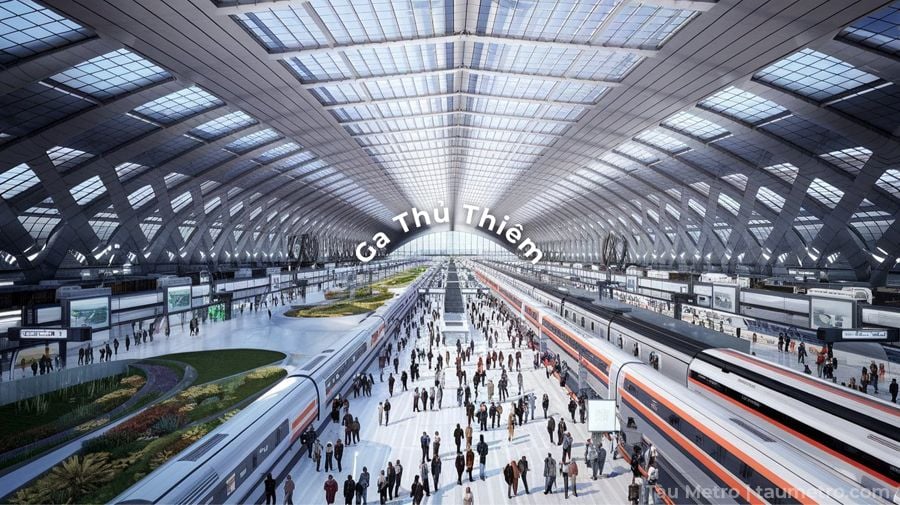 |
| Illustration photo. (source: AI). |
The Government has just issued Report No. 572/BC-CP dated June 23, 2025, accepting, revising and completing the draft Law on Railways (amended) to send to the National Assembly Standing Committee.
Previously, the Secretary General of the National Assembly had Report No. 5233/BC-TTKQH summarizing the opinions of National Assembly deputies discussing in Groups and Halls on the draft Law on Railways (amended). Specifically, there were 53 opinions expressed by National Assembly deputies, 1 National Assembly deputy sent written opinions on the draft Law on Railways (amended).
In general, the opinions of the National Assembly deputies all agreed with the necessity of promulgation, scope of amendment and basic content of the draft Law; the majority of opinions highly agreed with the contents of the draft Law.
The draft Law has promptly and fully institutionalized the Party's policy on investment in developing the railway system, removing "institutional bottlenecks" in the railway sector, in line with the requirements of innovative thinking in law-making; some comments have been directly contributed to specific articles and clauses of the draft Law.
Clearly limit the scope of application
In the Report on receiving, revising and completing the draft Law on Railways (amended), the Government said that it had directed the Ministry of Construction (the drafting agency) to coordinate with the Ministry of Justice , the National Assembly's review agency, and relevant agencies to study and receive maximum comments and revise and complete the draft Law, including 18 mechanisms and policies of a specific and special nature for investment in developing the railway system.
It is known that during the discussion, a National Assembly delegate proposed that the legalization of 18 special mechanisms and policies in the draft Law must ensure that they are not implemented mechanically but must have clear viewpoints so that the regulations can be implemented stably and have a clear impact on railway construction activities.
Regarding this opinion, the Government said that it has reviewed and adjusted 18 mechanisms and policies in the draft Law to ensure that these policies are not implemented mechanically, are stable and create breakthroughs for the development of the railway system; at the same time, ensure to fully institutionalize the Party's policies and guidelines.
In addition, the Government has reviewed all specific and special mechanisms and policies and has limited the scope of application of these mechanisms and policies to only important national projects and projects whose investment policies are decided by the National Assembly, not universally applicable to all railway projects.
During the discussion of the draft Law on Railways (amended), there were opinions suggesting to clarify investment under the PPP method, the risk sharing mechanism between the state and investors to ensure the principle of reasonable profit throughout the project life cycle.
Regarding this content, the Government said that the risk-sharing mechanism between the State and investors ensures the principle of reasonable profits throughout the life cycle of the railway project under the PPP method, which is implemented in accordance with the provisions of the law on investment under the PPP method. Therefore, the Government proposes to keep it as in the draft Law.
Regarding the proposal to add a clear mechanism or to assign the Government to regulate cases where private investors want to participate in railway projects decided by the State (such as national or local railways), the Government said that the draft Law already has 1 Article (Article 24) for private investors to participate in investing in railway projects (national railways, local railways).
For projects whose investment policy has been decided by the State, if there is an investor who proposes and it is feasible, the investment policy will be adjusted according to the provisions of law.
Regulations on mechanisms when investors want to participate in railway projects have been stipulated in the law on investment and the law on investment under the PPP method. Therefore, the Government proposes to keep it as in the draft Law.
In the Report on receiving, revising and completing the draft Law on Railways (amended), the Government clarified the opinion that the provision in Clause 5, Article 25 could cause negative consequences. Accordingly, investors without bidding can still benefit from urban land around the station, which can easily lead to ineffective selection of investors and conflicts with land laws.
According to the Government, railway projects often have large total investment and very low capital recovery ability. Investors in railway construction projects will have to ensure funding for management and maintenance of railway infrastructure after investment. Therefore, although the 2017 Railway Law has many incentive mechanisms, since the Law took effect, it has attracted almost no private investors to participate in railway project investment.
Therefore, to encourage and attract private investors to participate in railway investment and institutionalize Resolution No. 68-NQ/TW of the Politburo on private economic development, this policy is necessary.
Investors who are assigned to participate in investing in TOD projects in the vicinity of railway stations must still pay land use fees and carry out procedures according to investment laws and land laws. Therefore, the Government proposes to keep the draft Law as
 |
| An existing North-South railway section. |
Clear regulations on project transfer
It is known that during the discussion of the draft Law on Railways (amended), there were opinions that Point a, Clause 6, Article 25 stipulates that "Investors are not allowed to transfer projects, capital, and assets formed after investment to foreign organizations, individuals, or organizations with foreign capital" in case the investor goes bankrupt and all of this capital and assets are foreign loans that according to the Bankruptcy Law must be reserved for the lender, that is, for the foreign borrower.
National Assembly delegates requested information on how this case has been handled in practice and suggested that the drafting committee review this regulation to make it suitable for practice.
Regarding this opinion, the Government said that this content aims to institutionalize Resolution No. 68-NQ/TW dated May 4, 2025 of the Politburo on private economic development.
The provisions of the current 2017 Railway Law and the Investment Law do not prohibit organizations and enterprises from participating in railway investment and do not restrict investors from mobilizing capital from domestic and foreign organizations and individuals.
In case of bankruptcy, all enterprises must comply with the provisions of the law on bankruptcy, according to which the enterprise must be responsible for all of the enterprise's debt obligations (not the responsibility of the state).
On the other hand, because this is a form of private investment, the investment capital belongs to the enterprise (not state investment capital), so the state does not have to bear 100% of the investment capital and is not responsible for paying the debt on behalf of the enterprise. Therefore, the Government proposes to keep it as in the draft Law.
In the Report on receiving, revising and completing the draft Law on Railways (amended), the Government clarified the opinion requesting consideration of the provisions in Clause 2, Article 25 (now Article 24), because many projects have very large compensation and resettlement support costs, accounting for a significant proportion; the compensation and resettlement support costs will be included in the total assets of the project. Delegates are concerned that the commitment to hand over clean land is acceptable, but this cost is not included in the proportion of state capital participating in the project, which will result in a loss of state assets.
Regarding this content, the Government said that according to the current law on investment in the form of public-private partnership, the State's capital participation level is allowed to not exceed 50% of the total project investment.
For railway projects, due to the large total investment, the level of state support to ensure financial feasibility is large and always exceeds 50% to ensure the feasibility of the financial plan.
This is the most important reason why there have been no investors participating in railway projects in the country as well as many countries around the world.
Therefore, in order to institutionalize Resolution No. 68-NQ/TW, expanding the participation of private enterprises in railways, it is necessary to increase the level of State support to 80% or maintain the level of 50% as prescribed by the law on PPP, it is necessary to stipulate that the State ensures the cost of site clearance and does not include this part of the cost in the State's participation rate.
Currently, the cost to determine the investor's payback period according to the provisions of the PPP law does not include the cost of site clearance and the State's support participation. This part of the site clearance cost is settled in the site clearance component project. This asset is also the project's asset.
Investors are also only given the right to manage and operate during the capital recovery period, then hand over the entire project to the state and establish public ownership. Therefore, the Government proposes to keep it as in the draft Law.
Regarding the proposal to clarify the meaning of the term "experience" and the experience conditions to avoid the case of not being able to find investors due to the experience conditions being set too strictly, the Government said that the experience of investors has been stipulated in the investment law, the law on investment in the form of PPP and the law on bidding.
To ensure uniformity, the Government proposes not to stipulate this in this law.
“The most important criterion is that the investor has financial capacity. In case of no experience, the draft Law has expanded and added the condition of having an agreement with an experienced partner to ensure maximum mobilization of investors but also ensure the project's success,” the Government said.
Also in the Report on receiving, revising and completing the draft Law on Railways (amended), the Government proposed to keep Clause 5, Article 25 intact. (The provincial People's Committee decides on the appointment of project investors according to the TOD model) and maintains the same as Clause 3, Article 26 (The provincial People's Council is allowed to decide on the use of local budget to implement independent public investment projects to carry out compensation, support and resettlement work according to the TOD area planning).
Accordingly, railway projects invested by the State must have land and then conduct bidding and auction. In case of wanting to give priority to railway investors to develop these urban projects, then priority should be given to railway investors to participate in bidding and auctioning these TOD projects.
The Government believes that railway projects often have large total investments and very low capital recovery capabilities. Investors in railway construction projects must ensure funding for management and maintenance of railway infrastructure after investment.
Although the 2017 Railway Law has many incentive mechanisms, since the Law took effect, it has attracted almost no private investors to invest in railway projects.
“Therefore, to encourage and attract private investors to participate in railway investment and institutionalize Resolution No. 68-NQ/TW of the Politburo on private economic development, this policy is necessary,” the Government affirmed.
Source: https://baodautu.vn/tuong-minh-cac-co-che-dac-thu-dac-biet-de-dau-tu-ha-tang-duong-sat-d312211.html










































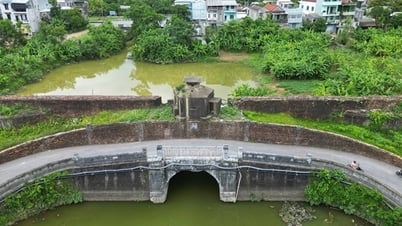











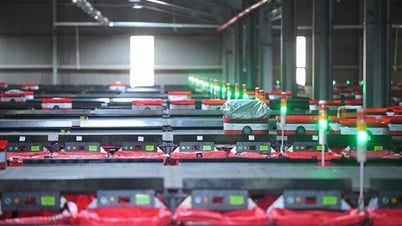



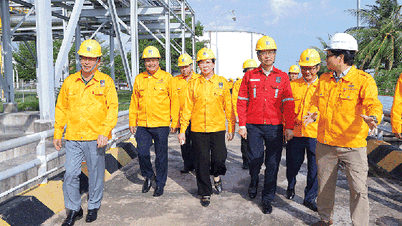





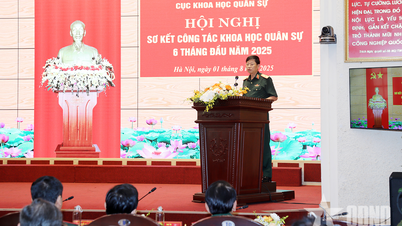

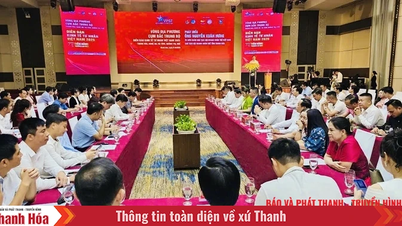

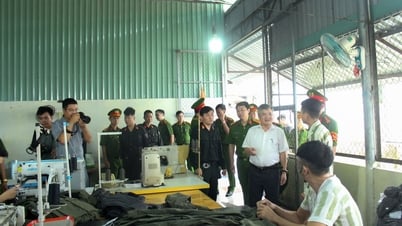

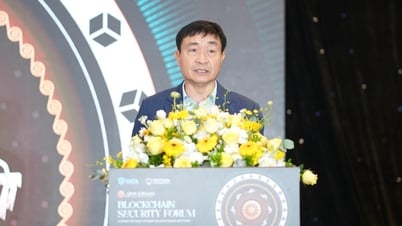
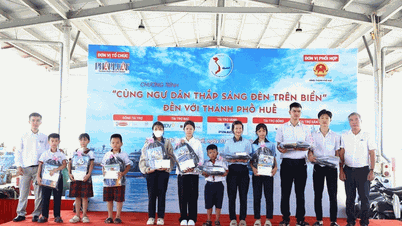






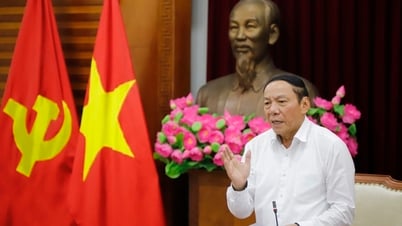
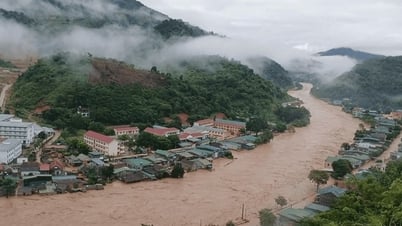























Comment (0)